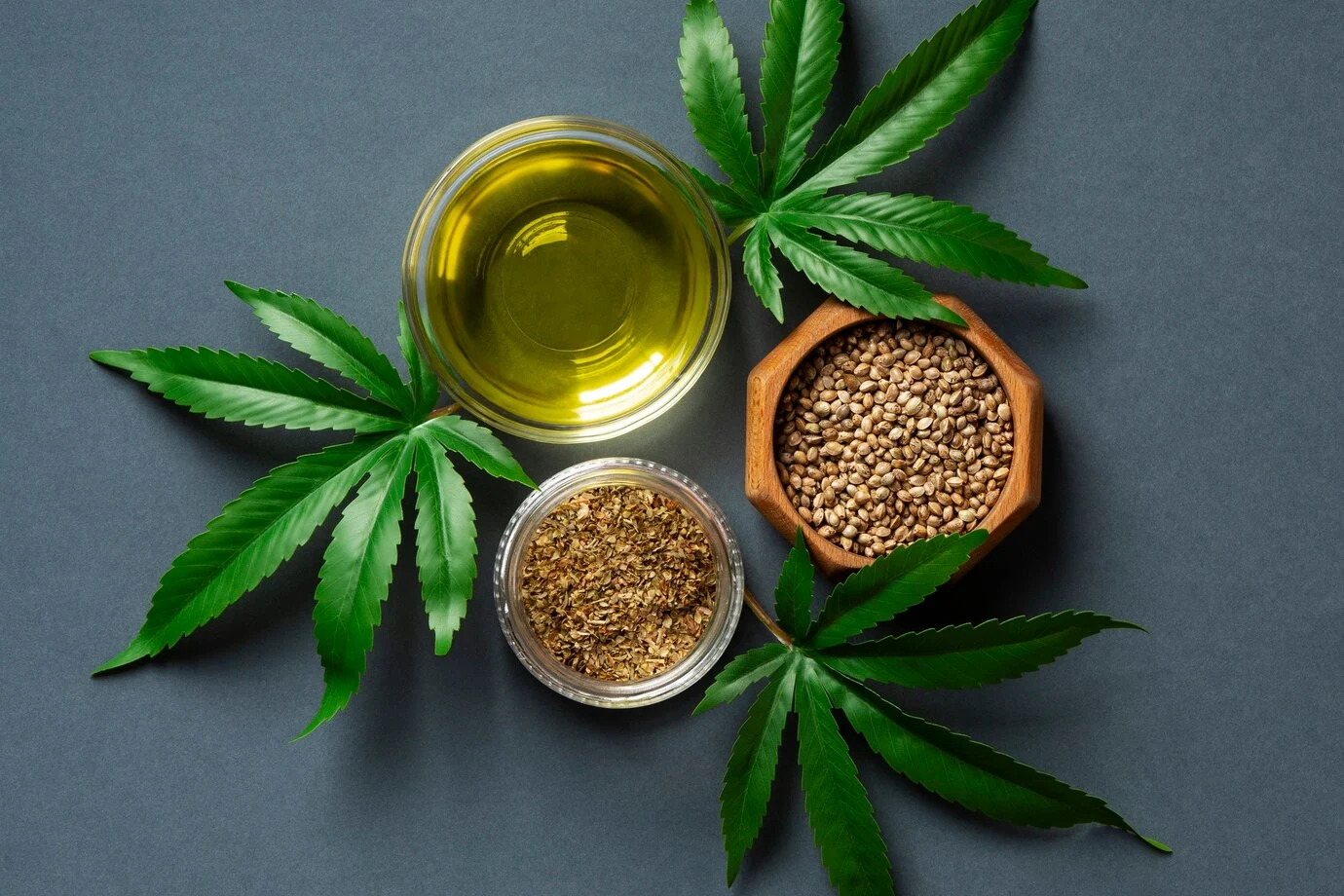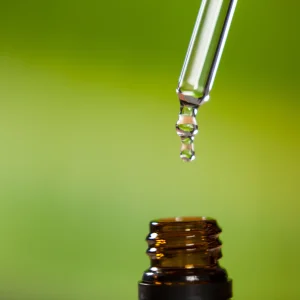THCA, also known as tetrahydrocannabinolic acid, is a compound that is found in cannabis plants. It is a non-psychoactive precursor to THC, the well-known psychoactive component of cannabis. While THCA does not produce the same intoxicating effects as THC, it still has a variety of potential effects on the brain and body. In this article, we will explore the impact of THCA on the brain, its role in mood regulation, its potential health benefits, as well as its safety and side effects.
Understanding THCA: A Brief Overview
Before diving into the effects of THCA on the brain, let’s take a moment to understand what it is. THCA is a cannabinoid that is primarily found in raw and unheated cannabis plants. It is the acidic form of THC and is converted to THC through a process called decarboxylation. Since THCA is non-psychoactive, it does not produce the euphoric “high” commonly associated with cannabis use. However, it is believed to have its own unique therapeutic properties.
THCA, or tetrahydrocannabinolic acid, is just one of over a hundred different cannabinoids found in the cannabis plant. These cannabinoids interact with the body’s endocannabinoid system, a complex network of receptors and neurotransmitters that help regulate functions such as mood, memory, pain sensation, and appetite. The discovery of THCA and its potential therapeutic benefits has sparked a growing interest in the medical community regarding the use of cannabis as a treatment for various conditions.
The Chemical Structure of THCA
THCA has a complex chemical structure that contributes to its potential effects on the brain. It is composed of carbon, hydrogen, and oxygen atoms arranged in a specific configuration. This chemical structure allows THCA to interact with the body’s endocannabinoid system, a complex network of receptors and neurotransmitters that plays a crucial role in regulating various physiological processes.
When THCA is consumed, whether through raw cannabis consumption or juicing, it does not produce the psychoactive effects commonly associated with THC. Instead, THCA is believed to possess anti-inflammatory, neuroprotective, and antiemetic properties. Research into the specific mechanisms of how THCA interacts with the endocannabinoid system is ongoing, with promising results indicating its potential as a therapeutic agent for conditions such as epilepsy, chronic pain, and neurodegenerative diseases.
The Difference Between THCA and THC
While THCA and THC share a similar chemical structure, there is a significant difference between the two compounds. As mentioned earlier, THCA is non-psychoactive, meaning it does not produce the intoxicating effects commonly associated with cannabis. On the other hand, THC is psychoactive and is responsible for the euphoric effects of cannabis. The key distinction lies in the presence or absence of a carboxyl group in the chemical structure of each compound.
Decarboxylation, the process by which THCA is converted to THC through heat exposure, is a crucial step in activating the psychoactive properties of cannabis. This transformation occurs when cannabis is smoked, vaporized, or cooked, leading to the release of carbon dioxide and the conversion of THCA into THC. Understanding the distinction between THCA and THC is essential for both recreational users seeking a psychoactive experience and medical patients looking to harness the potential therapeutic benefits of cannabis without the intoxicating effects.
The Impact of THCA on the Brain
Now that we have a basic understanding of THCA, let’s explore its potential impact on the brain. While research on THCA is still in its early stages, preliminary studies suggest that it may have neuroprotective properties and could promote brain cell growth.
THCA, or tetrahydrocannabinolic acid, is a non-psychoactive compound found in raw cannabis plants. When heated or aged, THCA decarboxylates into THC, the well-known psychoactive component of cannabis. However, recent research has focused on the potential therapeutic benefits of THCA itself, particularly its effects on brain health.
Neuroprotective Properties of THCA
One area of interest regarding THCA is its potential neuroprotective properties. Researchers have found that THCA may protect brain cells from damage caused by oxidative stress and inflammation, both of which are implicated in neurodegenerative diseases like Alzheimer’s and Parkinson’s. While further studies are needed to fully understand the extent of THCA’s neuroprotective effects, the initial findings are promising.
Moreover, THCA has shown anti-inflammatory properties that could help reduce neuroinflammation, a common feature of various brain disorders. By modulating the inflammatory response in the brain, THCA may offer a novel approach to treating conditions characterized by excessive inflammation, such as multiple sclerosis and traumatic brain injury.
THCA and Brain Cell Growth
In addition to its potential neuroprotective properties, THCA has also been shown to stimulate the growth of new brain cells. This process, known as neurogenesis, is essential for maintaining brain health and function. By promoting neurogenesis, THCA may contribute to improved cognitive function and overall brain health. However, more research is needed to fully understand the mechanisms involved and the extent of THCA’s effects on brain cell growth.
Furthermore, some studies suggest that THCA’s interaction with the endocannabinoid system plays a crucial role in its neurogenic effects. The endocannabinoid system, which comprises cannabinoid receptors and endocannabinoids produced by the body, regulates various physiological processes, including neurogenesis. Understanding how THCA interacts with this system could provide valuable insights into its potential therapeutic applications for neurodegenerative conditions.
The Role of THCA in Mood Regulation
Beyond its potential effects on brain health, THCA may also play a role in mood regulation. While the exact mechanisms are not yet fully understood, research suggests that THCA may influence serotonin levels and have an impact on stress and anxiety.
Exploring the intricate relationship between cannabinoids and mood regulation opens up a fascinating realm of possibilities. The interaction between THCA and serotonin, a neurotransmitter known for its influence on mood and emotions, is particularly intriguing. Serotonin deficiency has been linked to various mental health disorders, making it a crucial target for therapeutic interventions. Studies hint at THCA’s ability to modulate serotonin levels in the brain, offering a potential avenue for alleviating symptoms of depression and anxiety. This delicate interplay between THCA and serotonin highlights the complexity of the endocannabinoid system and its impact on emotional well-being.
THCA and Serotonin Levels
Serotonin is a neurotransmitter that plays a crucial role in regulating mood and emotions. Low serotonin levels have been associated with conditions like depression and anxiety. Some studies have found that THCA may help regulate serotonin levels in the brain, potentially improving mood and reducing symptoms of these conditions. However, further research is needed to determine the precise mechanisms of THCA’s action on serotonin.
Delving deeper into the realm of neurotransmitter modulation, the potential of THCA to fine-tune serotonin levels offers a glimmer of hope for individuals grappling with mood disorders. By influencing the intricate dance of neurotransmitters in the brain, THCA showcases its versatility as a compound with multifaceted effects. Unraveling the mysteries of how THCA interacts with serotonin receptors may unlock novel therapeutic strategies for mental health conditions, paving the way for innovative treatment approaches.
THCA’s Impact on Stress and Anxiety
Stress and anxiety are common challenges in today’s fast-paced world. Research suggests that THCA may have an anxiolytic effect, meaning it could help reduce symptoms of stress and anxiety. While the exact mechanisms are not fully understood, preliminary studies have shown promising results. However, it is important to note that individual experiences may vary and that THCA should not be considered a substitute for professional medical advice or treatment.
The intricate interplay between THCA and stress response mechanisms sheds light on the potential of cannabinoids to modulate emotional well-being. As stress levels soar in modern society, exploring natural compounds like THCA for their anxiolytic properties offers a ray of hope for those seeking relief. While the journey towards understanding the full extent of THCA’s impact on stress and anxiety is ongoing, early research hints at its promising role in promoting emotional resilience. Embracing the complexity of cannabinoid interactions with the nervous system unveils a world of possibilities for harnessing nature’s remedies in the pursuit of mental wellness.
Potential Health Benefits of THCA
Beyond its impact on brain health and mood regulation, THCA has been studied for its potential health benefits in various conditions.
THCA and Neurodegenerative Diseases
Neurodegenerative diseases like Alzheimer’s and Parkinson’s are characterized by the progressive loss of brain cells. While there is no cure for these conditions, research suggests that THCA may have therapeutic potential. Some studies have shown that THCA may help reduce inflammation in the brain and prevent the accumulation of abnormal proteins, both of which are believed to play a role in the development and progression of neurodegenerative diseases. However, more research is needed to fully understand the implications and potential benefits of THCA in these conditions.
The Anti-inflammatory Effects of THCA
Inflammation is a natural response of the body to protect against injury and infection. However, chronic inflammation can contribute to a wide range of health conditions. Some studies suggest that THCA may have anti-inflammatory effects, potentially reducing inflammation throughout the body. While the exact mechanisms are not fully understood, this finding opens up possibilities for the use of THCA in conditions where inflammation plays a significant role.
The Safety and Side Effects of THCA
While THCA shows promise in various areas, it is important to consider its safety and potential side effects.
Understanding the Psychoactive Effects of THCA
Unlike THC, THCA is non-psychoactive and does not produce the intoxicating effects commonly associated with cannabis use. This makes it an appealing option for individuals seeking the potential health benefits of cannabis without the psychoactive effects. However, it is important to note that the conversion of THCA to THC can occur through factors such as heat and time, so caution should be exercised when preparing or using THCA-containing products.
Potential Risks and Warnings for THCA Use
While THCA is generally considered safe, it is important to approach its use with caution. As with any substance, individual sensitivities can vary, and it is advisable to consult with a healthcare professional before incorporating THCA into your routine. Additionally, THCA products may interact with certain medications, so it is important to disclose any supplements or medications you are currently taking to ensure safety and avoid potential drug interactions.
In conclusion, THCA, a non-psychoactive compound found in cannabis plants, has the potential to impact the brain in various ways. From its potential neuroprotective properties to its role in mood regulation, THCA offers a promising avenue for further research and exploration. However, it is important to note that while preliminary studies are encouraging, more research is needed to fully understand the effects of THCA on the brain and its overall therapeutic potential. As always, it is advisable to seek professional medical advice before incorporating any new substances into your routine.





